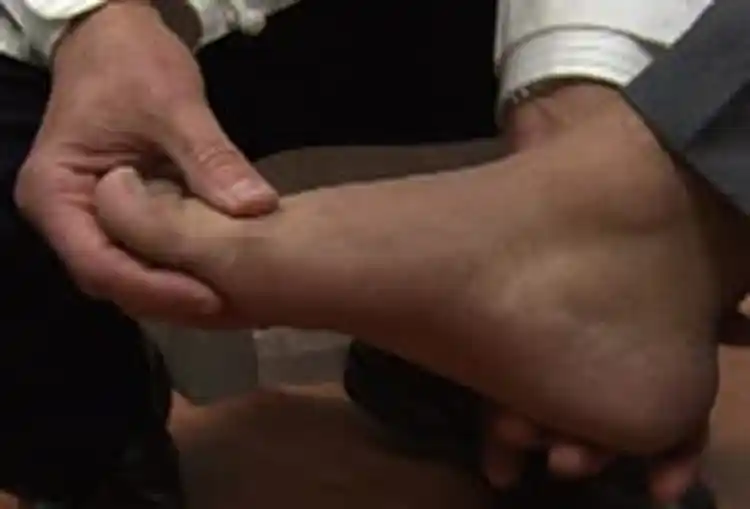Living With Gout

Hide Video Transcript
Video Transcript
Narrator
Doctor Edward Dwyer knows gout when he sees it. The throbbing agony drives many patients to seek medical help. Doctors generally prescribe one of three different treatments fo this type of searing pain.
So the decision to be discussed with the patient is do we just want to treat the acute attacks or do you want to take a medication to reduce your level of uric acid such that you will no longer have any attacks. Now obviously you're committing someone to lifelong therapy at that point.
So the treatments that are currently available to reduce the level of uric acid in your body, the one that has been around for a very long time is allopurinol, which actually is an enzyme-inhibitor that prevents the production of uric acid. Within the past few years a second agent, febuxostat, has become available and works in the exact same way. And finally an enzymatic protein that one can actually infuse into your body, which is called pegloticase. But the usual caveats in prescribing these types of medications is that when you initially give individuals a medication to reduce the uric acid, for about 3 to 6 months after the beginning of that therapy it actually may be more common to have more gout attacks...
which are actually physical uric acid precipitants that develop around joints under the skin and can be disfiguring, can cause a lot of issues with regard to skin breakdown, infections and those sorts of things.
More reason to talk your your doctor about a treatment option that's right for you. For WebMD, I'm Damon Meharg.
